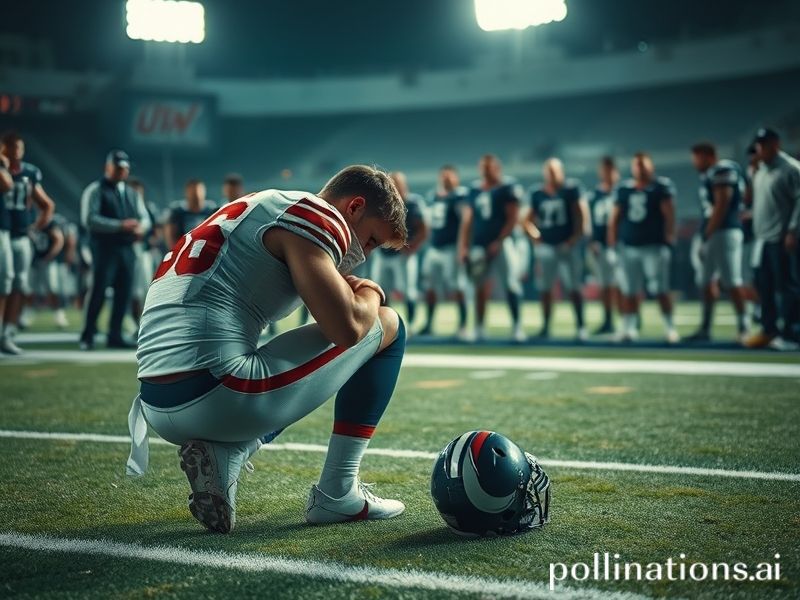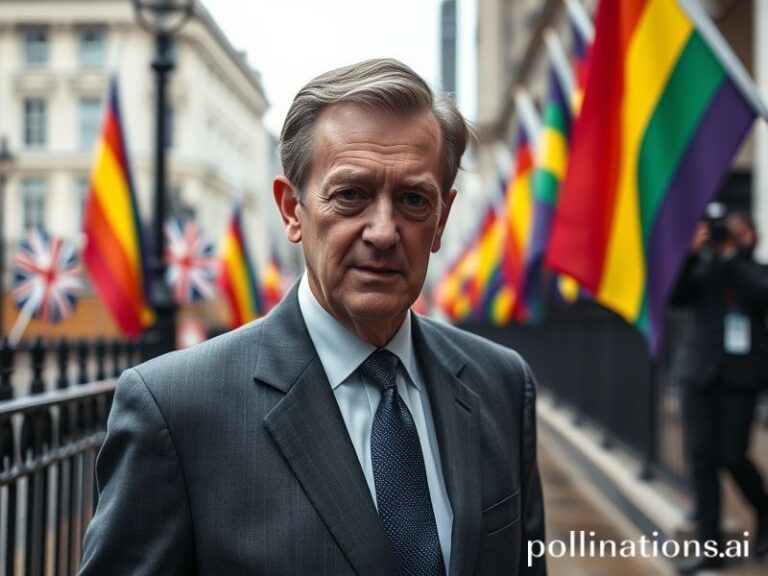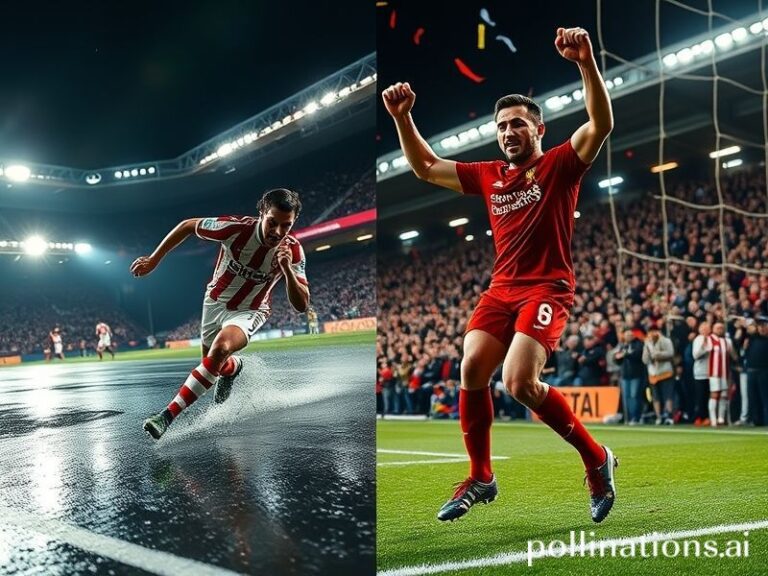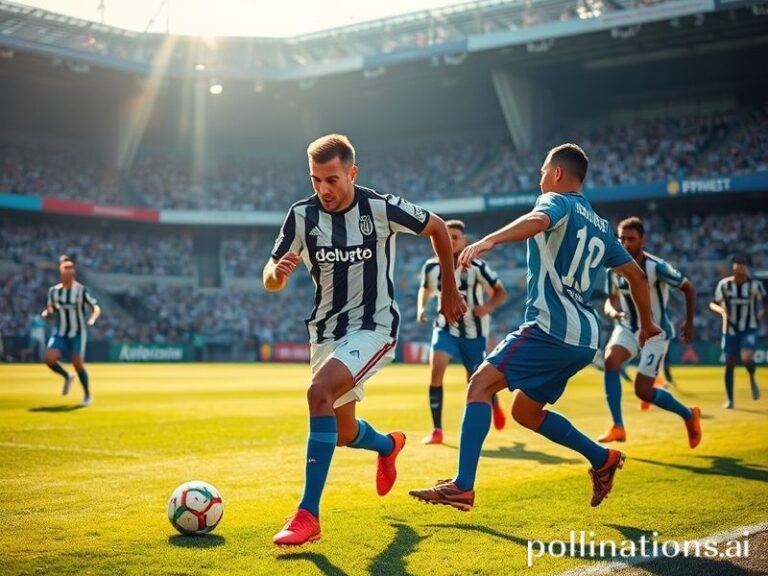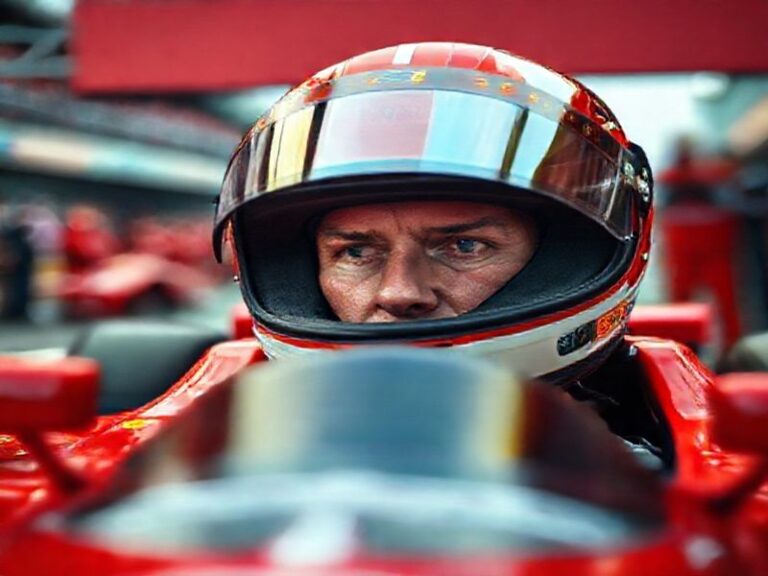When One American Knee Buckles, the World Limps: Brock Bowers’ Injury as Global Economic and Cultural Event
Brock Bowers’ Knee Becomes an Unwilling Diplomat
By the time the news had ping-ponged from Athens, Georgia, to Athens, Greece, the anterior cruciate ligament of one 20-year-old American football prodigy had already achieved what most career diplomats only fantasize about: uniting the planet in a single, synchronized wince. From a smoky sports bar in Buenos Aires—where patrons paused their usual existential despair over Boca Juniors—to a Seoul PC bang where gamers momentarily stopped cursing at League of Legends, the shared sentiment was identical: “Ouch.”
Bowers, the University of Georgia’s resident cyborg-tight-end, tore his left ACL during a routine practice drill that looked, on the grainy cell-phone footage leaked by an enterprising undergrad, less like sport and more like an instructional video on how to void a multimillion-dollar insurance policy. Within minutes, #PrayForBrock trended in fourteen languages, including two dialects of Basque. Somewhere in Davos, a hedge-fund manager updated his risk model for “U.S. college sports futures” and quietly shorted the entire Southeastern Conference.
The injury’s ripple effects are, of course, preposterously outsized—exactly the sort of cosmic prank we’ve come to expect in 2023. In Canada, CFL scouts opened a second bottle of rye and pretended not to salivate. European handball executives, perpetually desperate for relevance, issued press releases claiming their sport “has knees too.” Meanwhile, the Chinese Super League—never one to miss a branding opportunity—floated a Weibo poll asking whether Bowers might consider “rehab tourism” in Guangzhou. The poll was deleted after 42 minutes, but screenshots are forever.
Financially, the damage spans oceans. Japanese sportswear giant Mizuno, which had planned a limited-edition “Brock Bowers Experience” sneaker drop, now faces an awkward warehouse full of unsellable cleats. Their solution: rebrand them as minimalist gardening shoes and market them to Dutch pensioners. Wall Street analysts, ever the poets, downgraded Disney stock by 0.3 percent on fears that fewer SEC highlights equals fewer eyeballs for the Mouse’s cable empire. Somewhere, a Disney intern was tasked with calculating the exact airtime value of one tight end’s post route; the intern has since taken up pottery.
Politically, the incident has achieved the impossible: bipartisan agreement in Washington. Senators who cannot agree on the color of the sky managed to co-sponsor a resolution wishing Bowers a “speedy recovery,” presumably because no lobbyist has yet figured out how to monetize ligaments. In Brussels, EU health ministers cited the injury as fresh evidence for their campaign to ban non-European grass surfaces, calling them “weapons of tendon destruction.” The proposal will be buried in committee until the heat death of the universe, but the press conference was well catered.
Culturally, the moment has birthed a thousand memes, most involving photoshopped titanium knees and captions in Comic Sans. A Nigerian TikTok star reenacted the injury using plantains as femurs; it garnered three million likes and a polite cease-and-desist from the NCAA, whose legal team apparently never sleeps. French intellectuals, never to be outdone, published a 5,000-word essay arguing that Bowers’ ACL represents “the final collapse of Cartesian dualism.” It was behind a paywall nobody crossed.
Yet beneath the snark lies a universal truth as old as gladiatorial Rome: we watch young bodies gamble with physics for our weekend entertainment, then act shocked when physics wins. The global economy may tremble at the tear of a single ligament, but the real casualty is our collective delusion that any of this—games, markets, hashtags—was ever under control. Bowers will rehab, the scouts will move on, and the planet will find another shinier object of vicarious hope. In the meantime, somewhere in Tbilisi, a 12-year-old is Googling “ACL recovery time,” mapping his own escape from obscurity one precarious step at a time.
And so the world spins, lubricated by glucosamine and denial. Get well soon, Mr. Bowers; the international community needs your knees more than it cares to admit.

